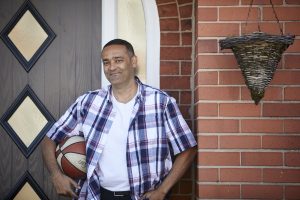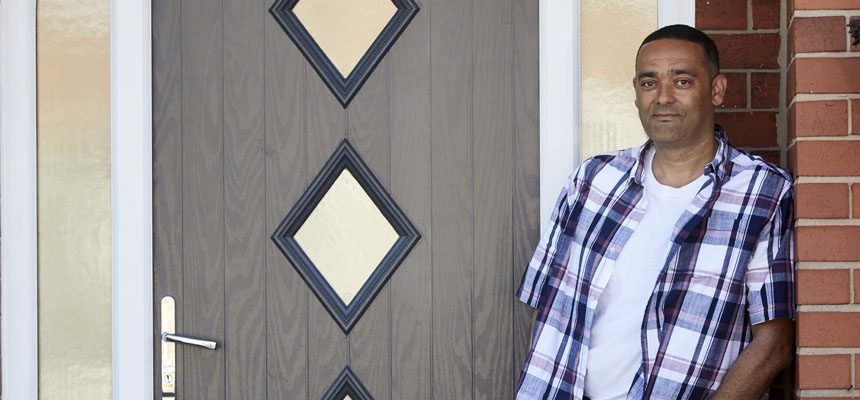Meet Wayne Brown. You might know him as the Service Manager for Safehouses Fostering – but he has also had a long career as a foster carer, beginning in his early twenties.
Wayne’s decision to foster was motivated by his mother’s inspiring legacy. She began fostering when Wayne was 17 and looked after more than 60 children, predominantly caring for children with disabilities or those from disadvantaged families.
Wayne became a foster carer in his own right at 23 and looked after 30 children mainly on a respite care basis, offering their regular carers a break or during times when a child or young person needed to be looked after in an emergency.
“From when I was a teenager, I can remember the house being really lively and busy with so many of us under one roof. There were many times when my mum needed help running the children to swimming lessons or football training alongside taking my then eight-year-old and 11-year-old siblings to school. I wanted to do everything I could to help her because she cared so deeply for the children and youngsters living with us. Seeing the impact that she had on their lives and the way they changed hers, brought me so much joy. It was something I’ll never forget being part of.”
Alongside providing part-time care to children and young people in need, Wayne was a rising star in the British Basketball League and played for the Manchester Giants. Through philanthropy work with his team, Wayne was also a youth development sports coach in local schools.

Two short years into his part-time fostering career, Wayne was involved in a car accident and was told he would never be able play basketball at that level again because of his injuries. It was then when he decided to work with children in care full-time. He said: “Looking back, I think about the accident and I count my blessings. It gave me a different perspective on life. I stopped playing basketball, but another opportunity presented itself within the fostering agency I was with where I could extend my support even further to young people. I decided to take on the role and became a support worker part-time alongside providing continued respite care.”
Because of his career in basketball at that time, many of the young kids looked up to him as a role-model, something Wayne said made all the difference. He said: “I was someone these children and young people looked up to because of my basketball career; I taught them how to believe in themselves because that’s the mentality I had playing with the Giants team. The reinforcement of telling someone they can do something, when they’ve never been told before, can be life changing and this time of team mentality positively influenced some of the kids I was caring for and supporting during that time.”
After working part-time as a support worker and foster carer, a position came up as a Regional Support Services Manager and Wayne decided to embark on a career in social care full-time and left his career as a foster carer. Several years later he took another decision, he said: “A social worker position came up and I was offered the job alongside a paid-for social work degree. I thought this new role could give me a chance to change the lives of so many more children in need. I also felt that with my experience as a foster carer myself, and having grown up with foster siblings, I would be able to relate to other carers because I walked the same walk they had and lived similar experiences.”
Five years after committing to social work full-time, Wayne felt it was time to broaden his experience and he applied for a social worker position at Safehouses Fostering in 2013. He has since been promoted to Team Manager and is now the agency’s Service Manager-the Agency has been judged as outstanding by Ofsted in 2018 and more recently in 2022. Now he manages the team recruiting foster carers to look after children and young people across Manchester and making sure the youngsters get the right level of care, support and safe place to live.
“I have great respect for everyone who works in foster care because I’ve worked in almost every role. Fostering or working in a support role isn’t something you can teach, it’s something you experience. Everyone experiences providing care and support in different ways, but the most rewarding aspect for me is the positive changes and the impact it can make on the lives of children and young people. And this is the reason why I love what I do.”

